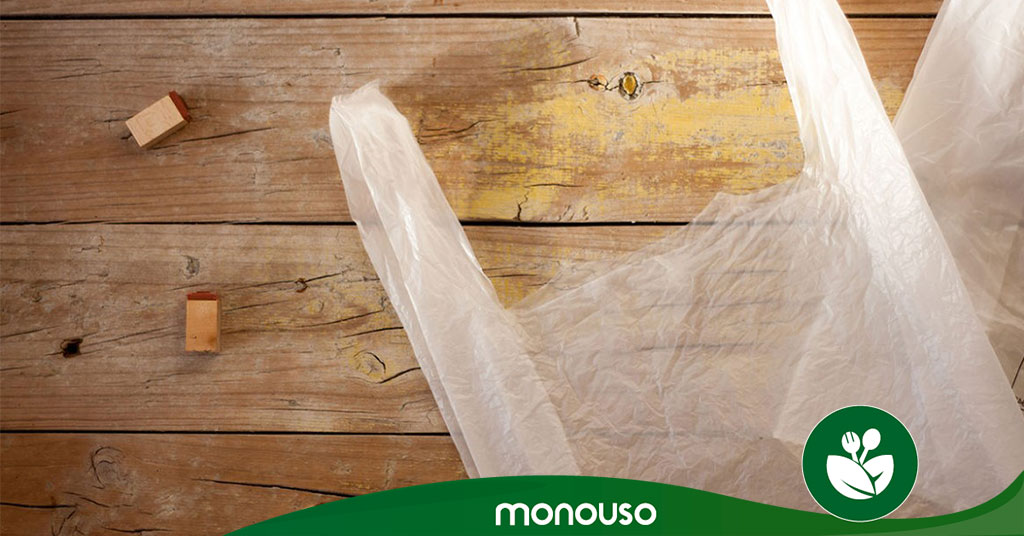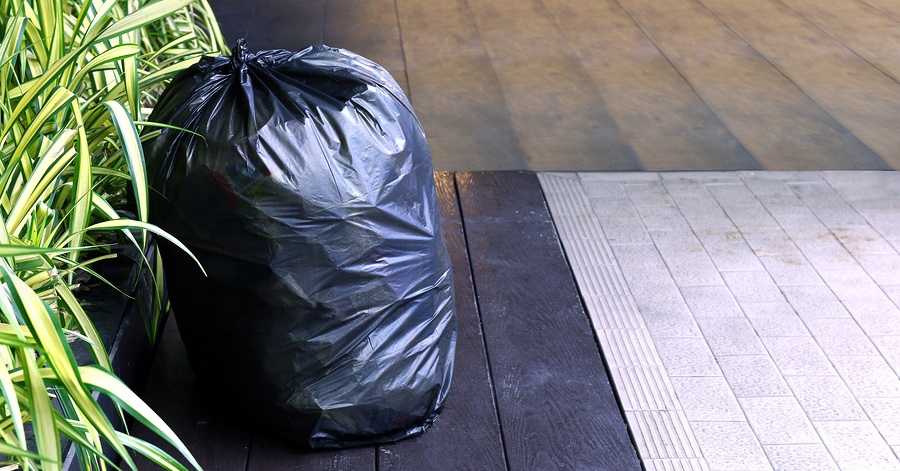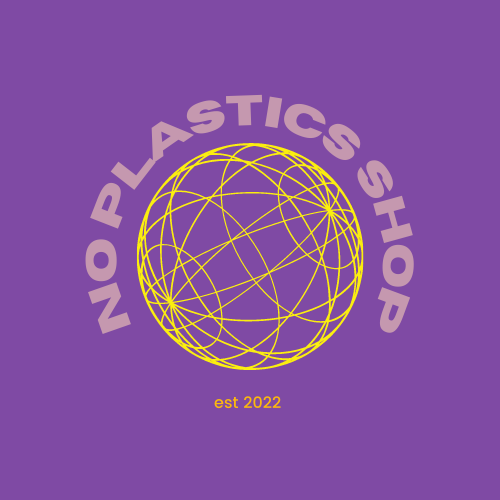PBAT Free Compostable Garbage Bags
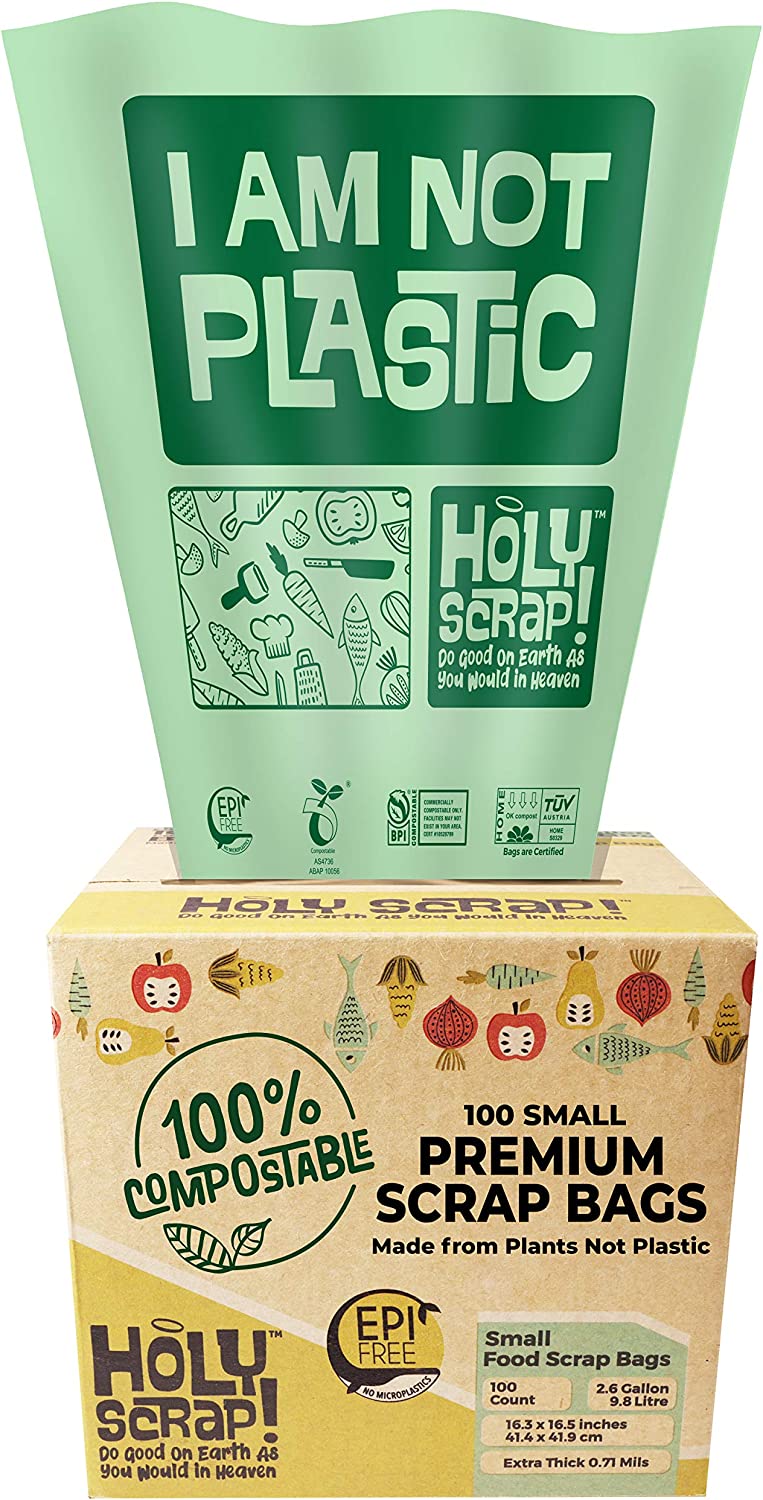
The Only Sustainable Alternative Plastic
Oh, the plastic garbage bag. What a marvel of human ingenuity! It's so handy, isn't it? Just chuck all your food scraps, rubbish, and waste into one of these bad boys and voilà, it's out of sight, out of mind. Or is it?
Earth-Friendly? Which Brands?
Once again we are looking for a product that contains no PBATs in its manufacture. There is an ongoing debate about what should be termed a bioplastic and PBATs should definitely not be among them.
Wholly derived from fossil fuels, they may be touted as breaking down easily, but toxic residues and micro-plastic particles remain. Any reference to Bio in a PBAT product is a misnomer.
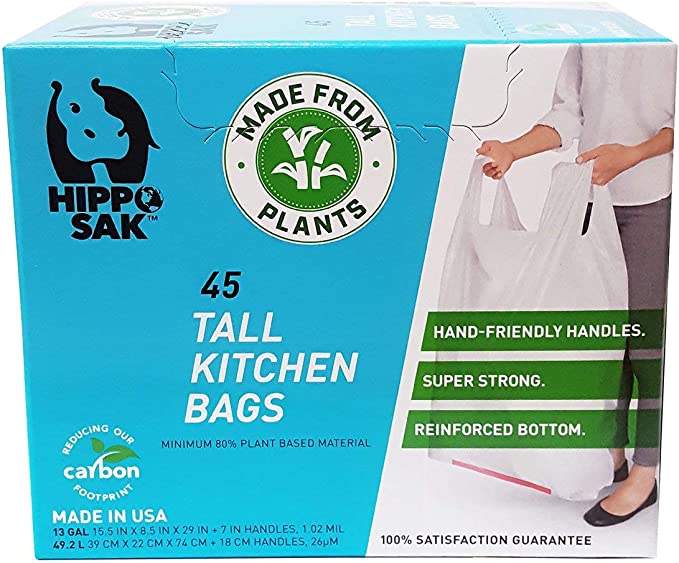
Many Brands Still Contain Plastic
Non plastic garbage bags means no plastic at all.
The reality is, plastic trash bags are wreaking havoc on our planet. Let's take a moment to consider the facts. Did you know that the average American household uses 60 plastic garbage bags per year? And with a population of over 328 million, that means the United States alone generates approximately 19.68 billion plastic household garbage can bags per year! And that's just one country.
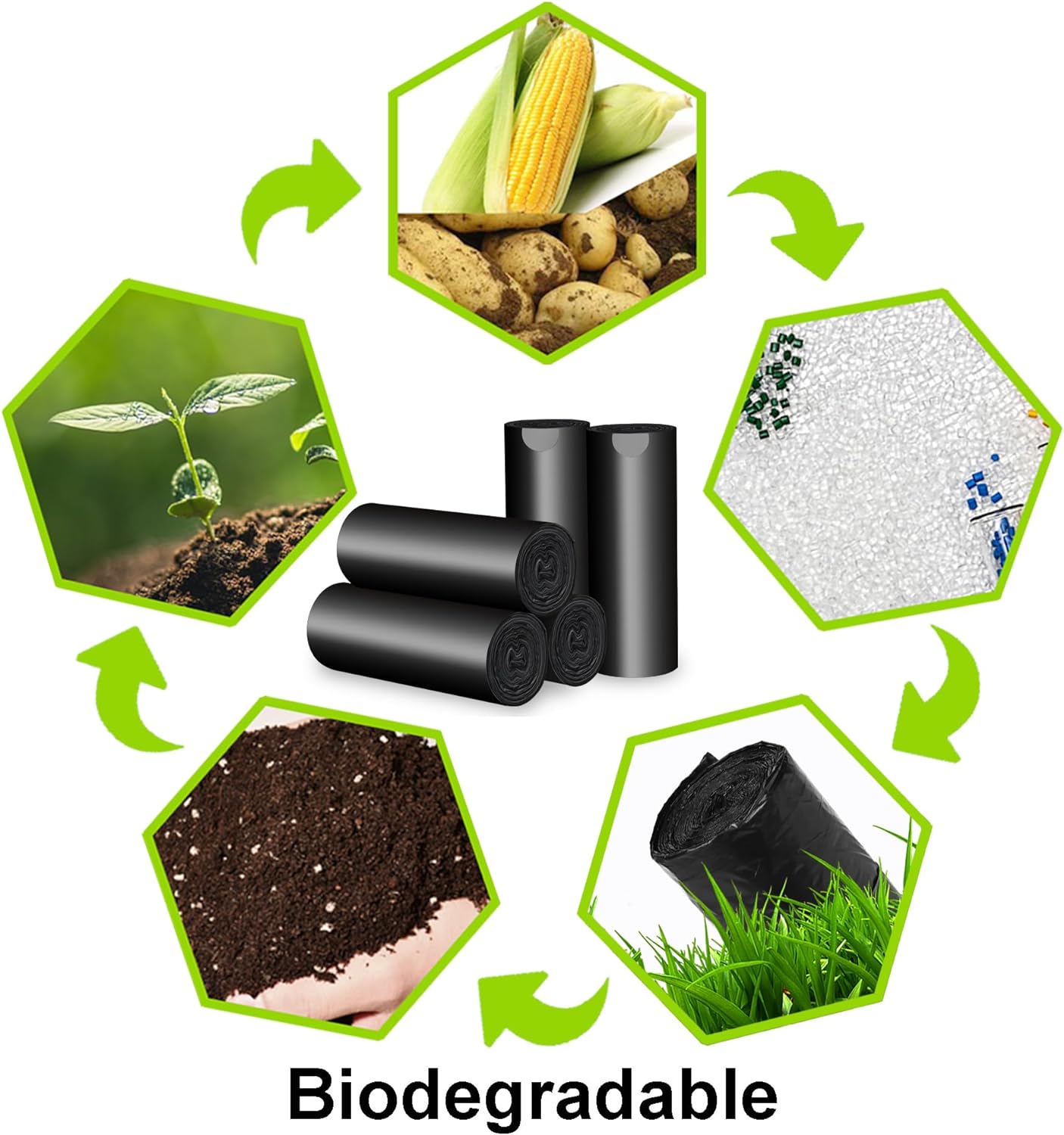
Confusing matters is that products made from PSMs and PLAs also fall in the category of bioplastics, but are instead solely derived from plants.
True bioplastics, (if the term bioplastic must be used at all) because the source material matters, when a biodegradable trash bag breaks down. What is left behind?
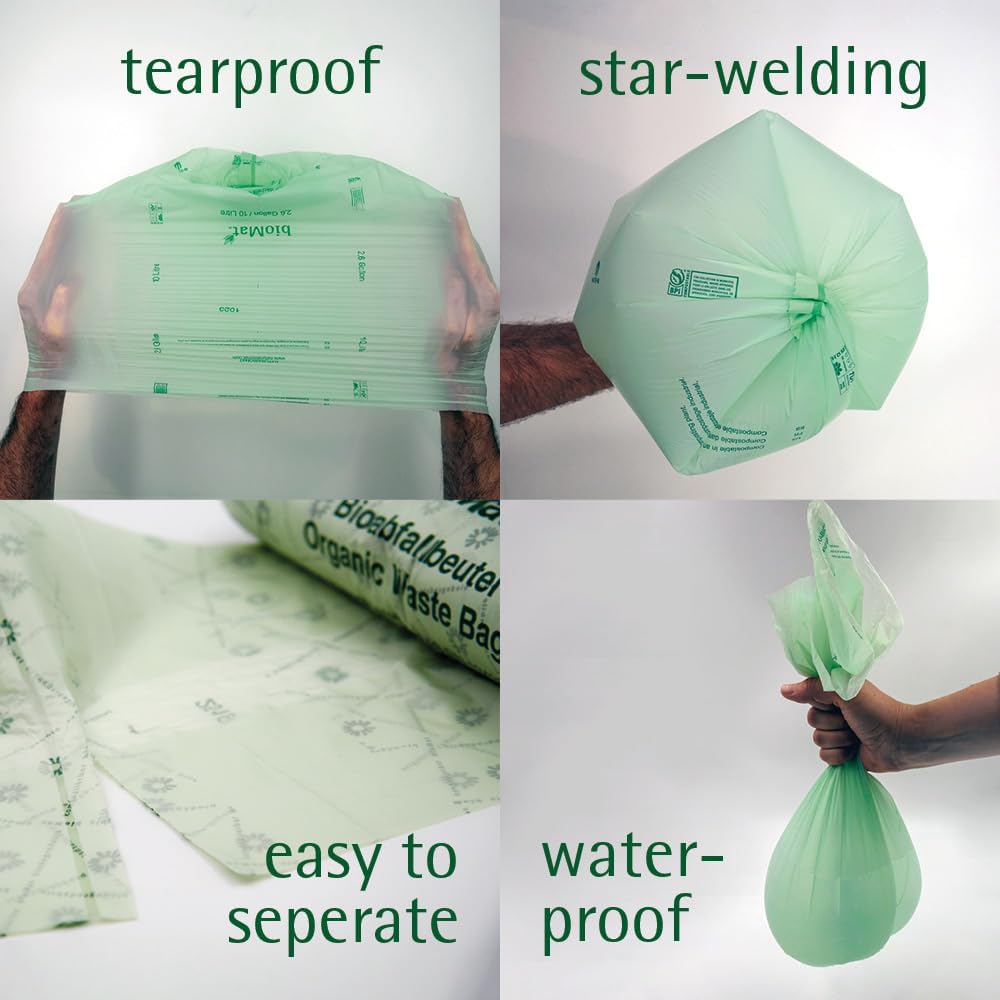
Biomat 64 gallon contractor size
The PBAT Problem
PBAT, by contrast is always and forever a petrol derived polymer. And when it breaks down will remain just that. With so many bioplastics in the marketplace... for consumers this is no doubt misleading.
There are options, substitutes and alternatives to plastic bags, but plastics are plastics are plastics and, make no mistake, a petrol product.
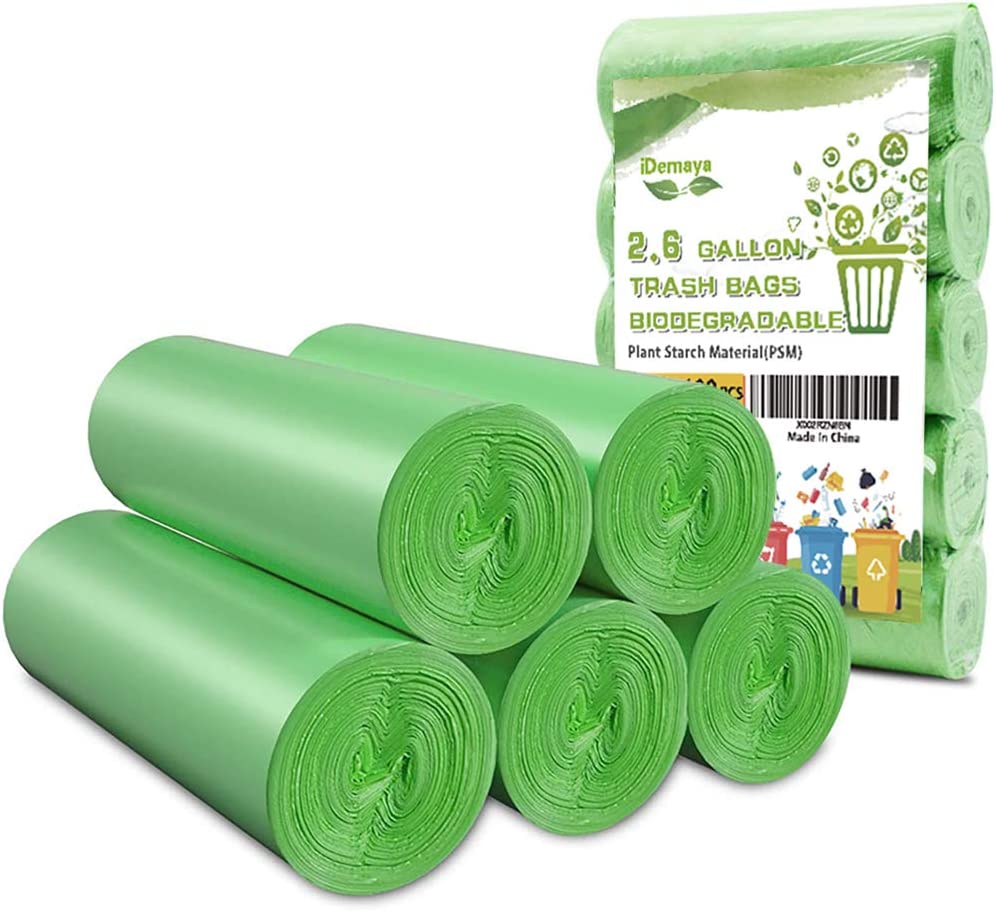
And The Plastic Residue Too
Don't let all those innocent-looking PBAT products fool you – they may be wreaking havoc on our oceans. PBAT, or polybutylene adipate terephthalate, is a type of biodegradable plastic used in a variety of products, from shopping bags to food packaging. The problem?
When PBAT degrades in the environment, it breaks down into tiny microplastics that are just as harmful as their non-biodegradable counterparts. That's right, folks. Even our well-intentioned efforts to use eco-friendly materials can come with unintended consequences.
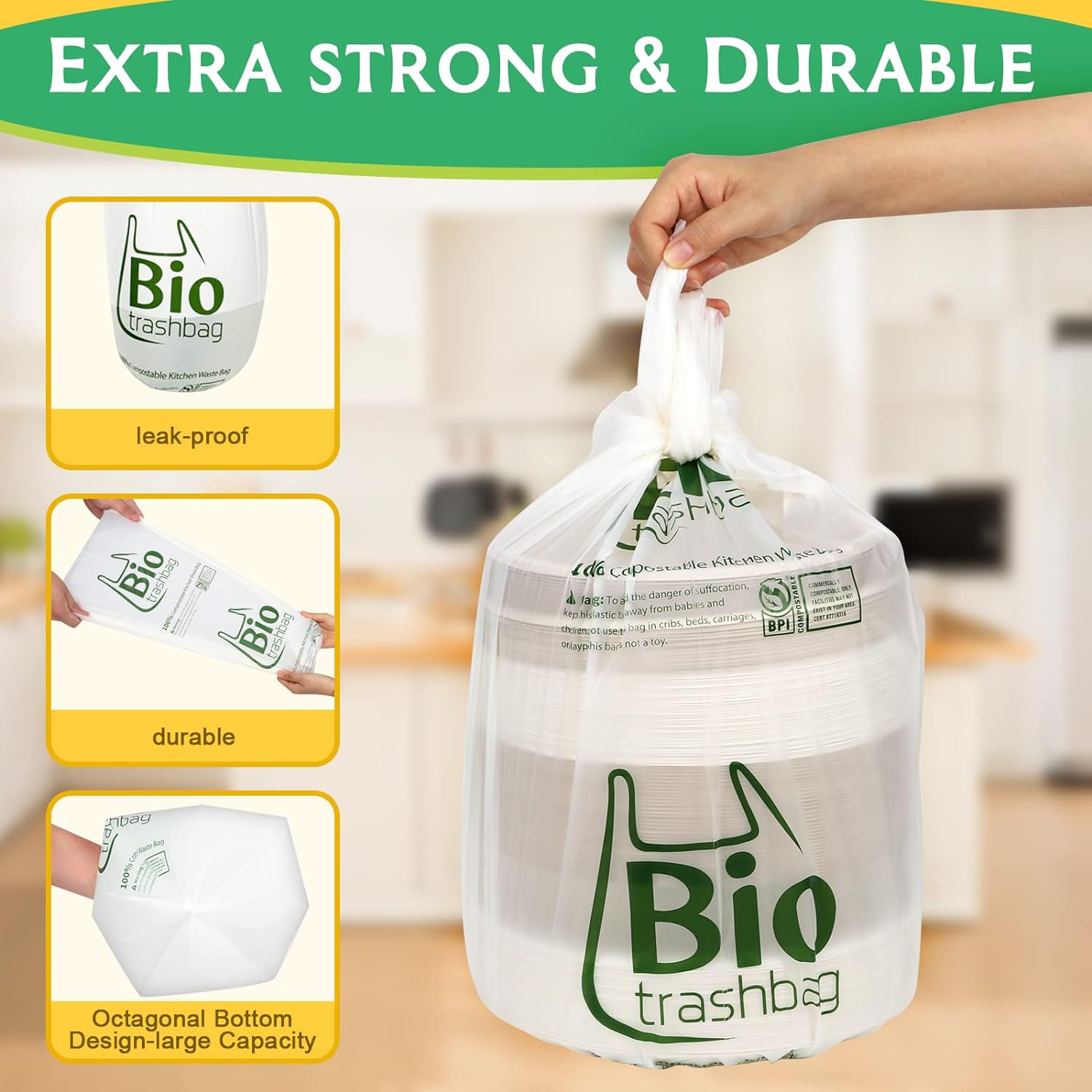
Can't Give Up On Our Planet
Plastic garbage bags are the epitome of convenience, allowing us to simply toss our plastic trash bag and forget about it. But let me tell you, folks, the convenience of these bags does not outweigh their damaging global impact.
Did you know that over 100 billion plastic bags are used annually in the United States alone? And that doesn't even account for the vast number of plastic bags that end up littering our streets, rivers, and oceans. These bags take centuries to decompose, leaving a lasting legacy of pollution and harm to our planet.
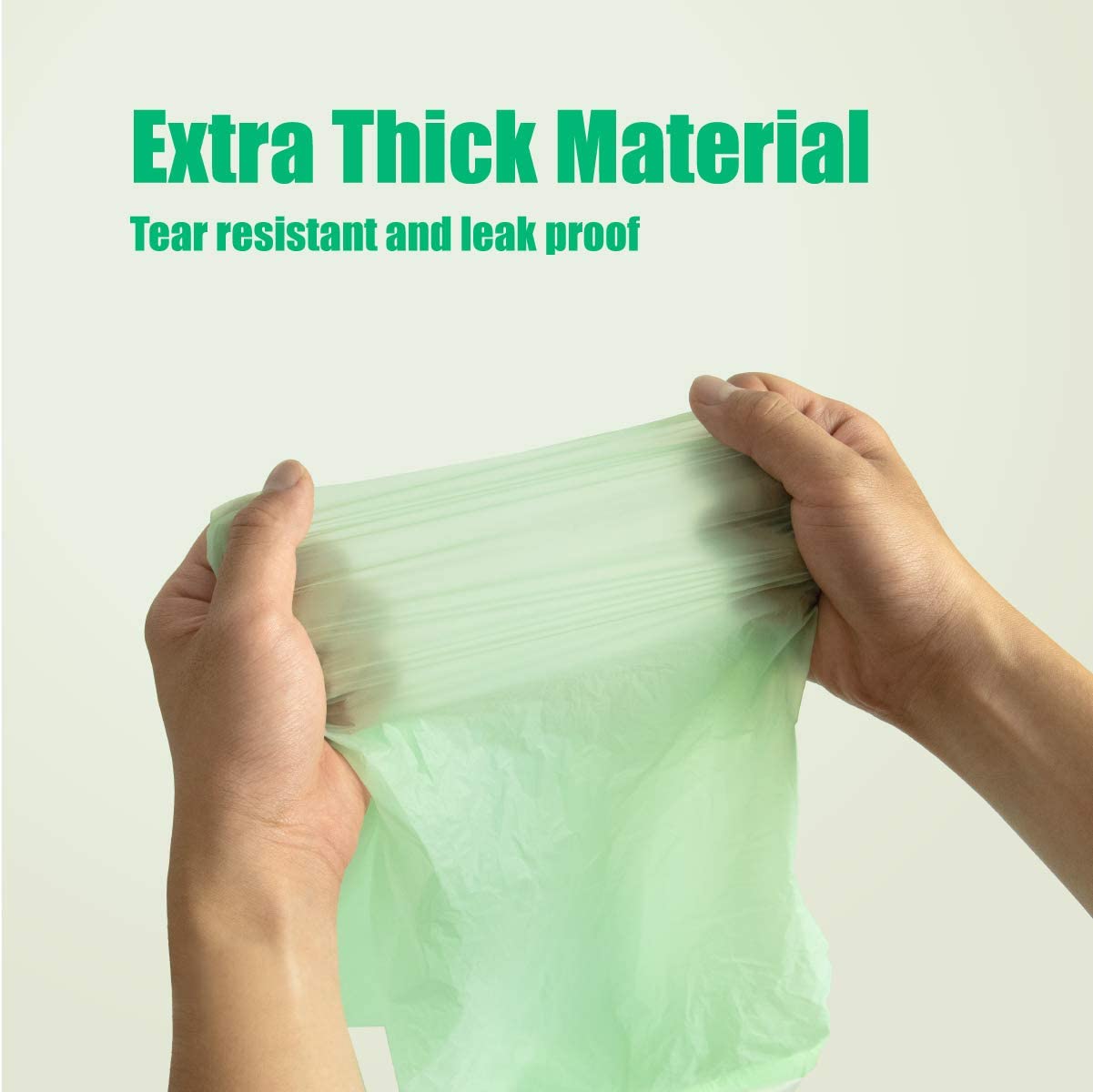
Now, imagine all those plastic bags sitting in a landfill, taking hundreds of years to decompose. Meanwhile, they're leaking all kinds of toxins into the soil and water. Or, even worse, imagine them floating in the ocean, polluting our marine life and destroying ecosystems.
But don't throw in the towel just yet – by being mindful of our plastic usage and properly disposing of PBAT products, we can help mitigate the impact of microplastic pollution.
There are companies producing truly plastic free reusable trash bag and bags and those are: Cacus, Keweilien, Ayotee, OrangeBio, Moongreen, Superbio, Ecomelo, iDemaya, Aneco, Gardatomy, Inwaysin, BioBag, Unni, Holy Crap, Powertec and Hippo Sak
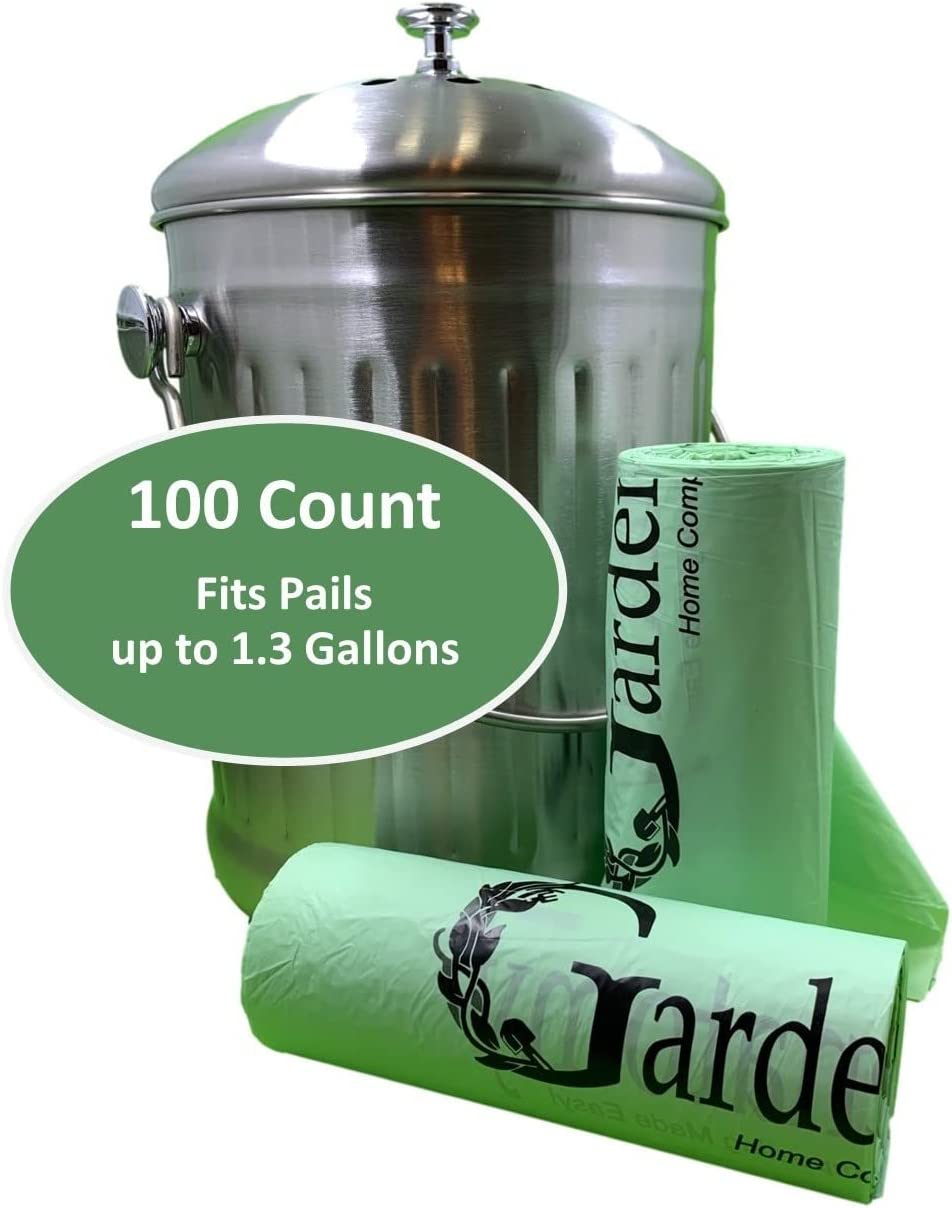
Oh PBAT, how you've caught our attention! Not many people know about PBAT, but let's just say it's not the sexiest stud in the room. In fact, PBAT is part of a much bigger problem - the microplastic problem.
Every Purchase Counts
When it comes to pollution, we often think of litter and trash, but microplastics are a whole other ballgame. These tiny particles are less than 5 millimeters in size and can come from a variety of sources, including our beloved, so frequently applauded, PBAT.
And let me tell you, if we don't start paying attention to these mini menaces, we might be in for a rude awakening. So let's all take a moment to appreciate the not-so-great PBAT and work towards a cleaner, microplastic-free environment!
The world is grappling with a plastic waste crisis that is threatening our health, natural environment, and future generations. If we don't act now and change our habits, the plastic pollution problem will continue to grow at an alarming rate.
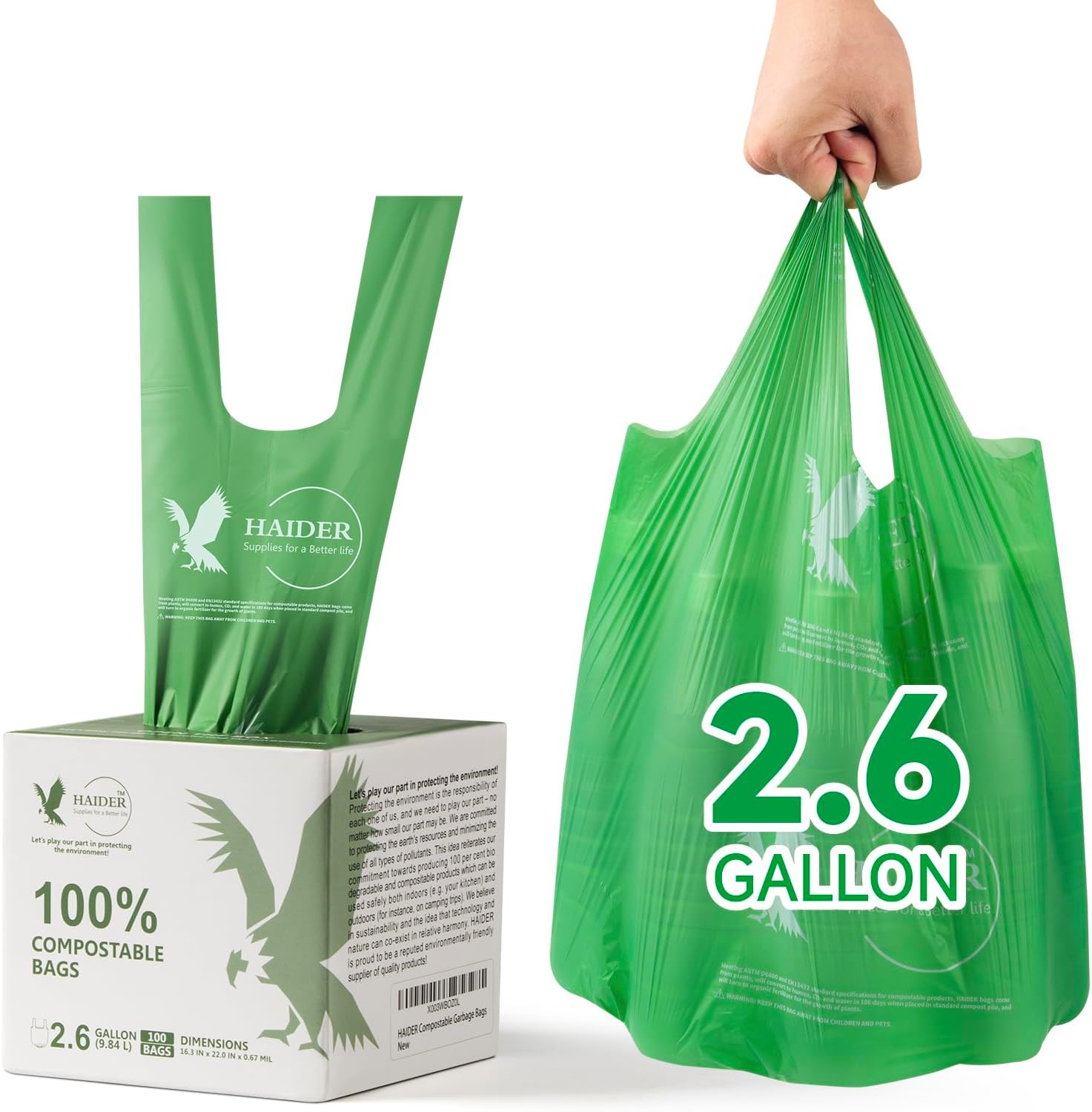
Haider 100% compostable
Recycling Does Help
While recycling and reducing our plastic usage can help, we also need to look for alternatives that are truly sustainable and eco-friendly.
And guess what? Recycling plastic trash bags doesn't really work all that well, truth be told. Like all thin film plastics, it clogs up much of the regular plastic recycling machinery. And the specialized machinery needed to process thin film plastics is hella costly.
All Is Not Lost
Fortunately, there are many brands making actual alternatives to plastic. Biodegradable trash bags that can break down naturally and without harming the ecosystem. Just got to weed them out!
We are exploring not only the importance of using biodegradable trash bags but identifying some of the best ones on the market that do not contribute to problems of micro-plastic pollution and environmental toxicity.
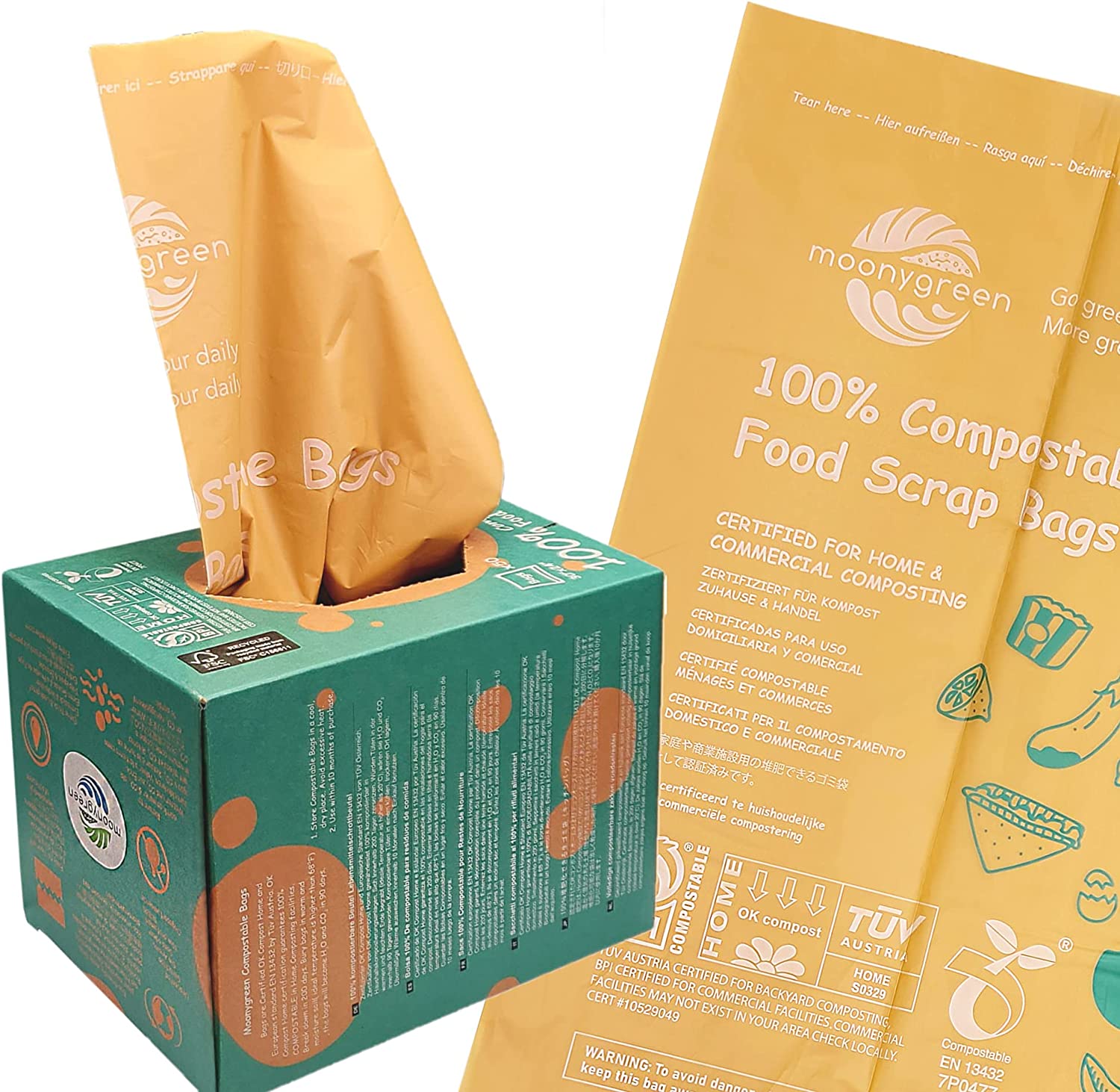
Make The Switch
It's not all doom and gloom. We can all do our part, every time we shop, to reduce the impact of plastic garbage bag pollution. How, you ask? By switching to compostable bags and plastic free solutions, of course! This means using biodegradable bags made from renewable resources like plant starches, cellulose, and even algae. Not only are they better for the environment, but they also break down faster and more efficiently.
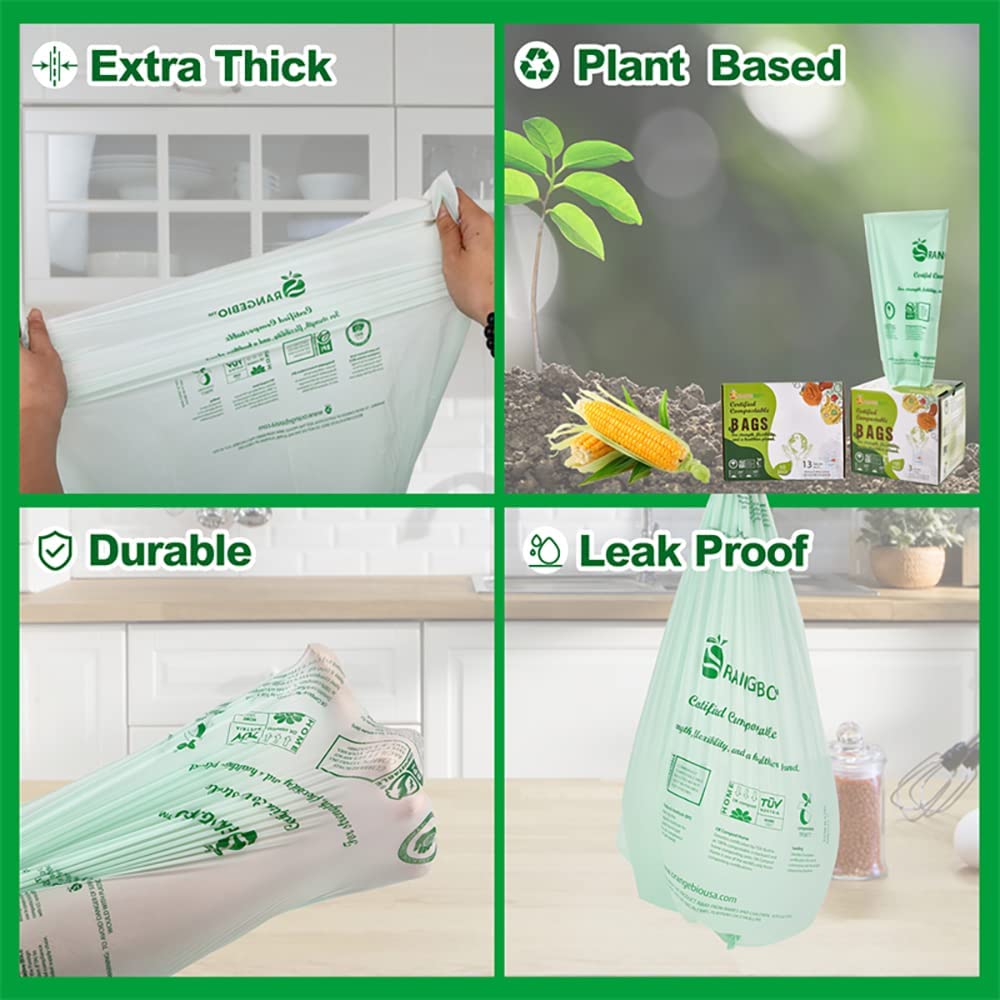
Truly biodegradable trash bags are bags that are made from natural, renewable resources like cornstarch, sugarcane, or vegetable oils. These materials are plant-based and can decompose in the environment without leaving behind any toxic residues or micro-plastics that can harm marine life or pollute our soil.
Unlike traditional plastic bags, biodegradable bags (that contain no PBAT) can turn back into natural elements like water, carbon dioxide, and organic matter, and leave behind no trace.
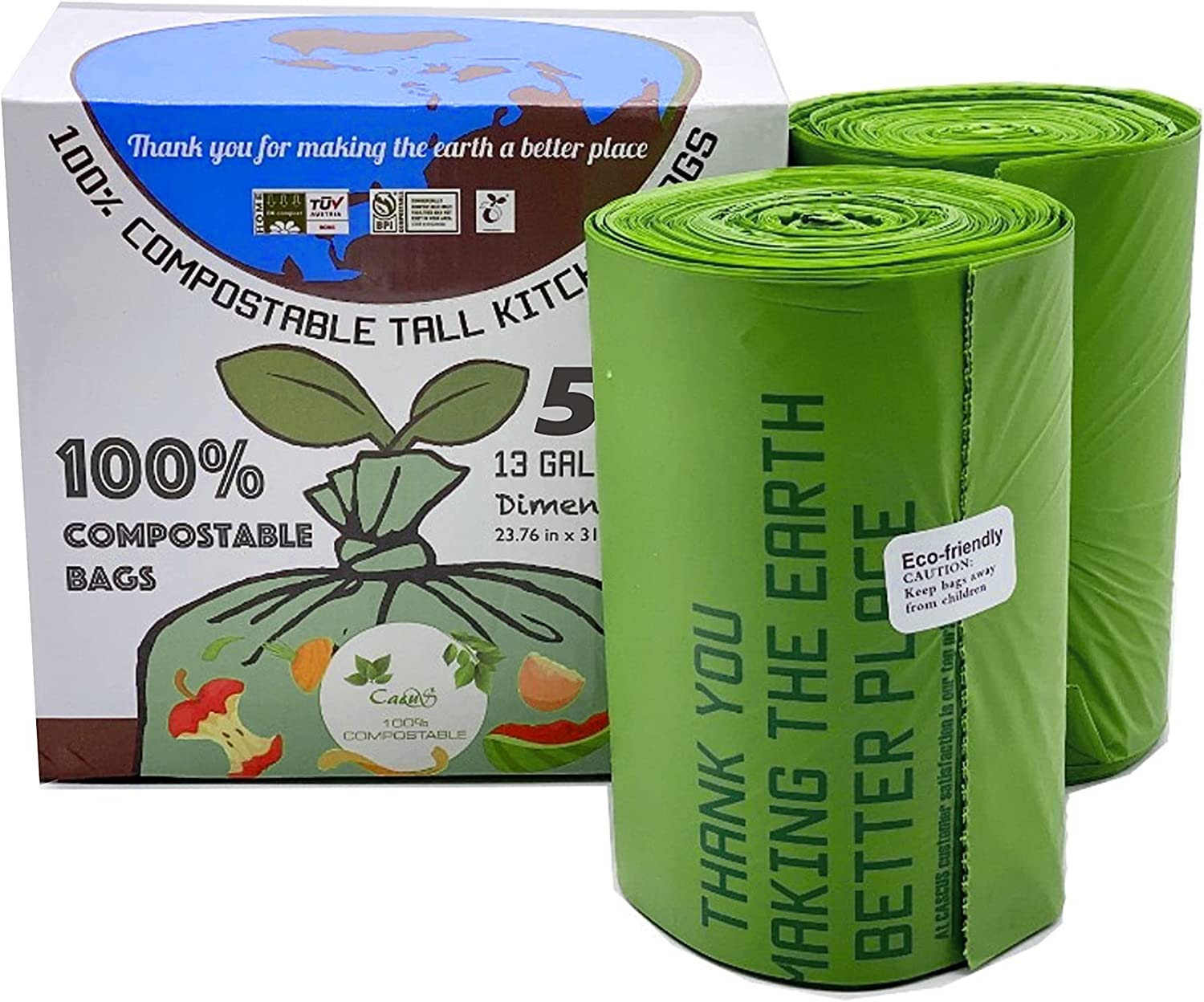
Compostable Trash Bags
Luckily, there is a solution: compostable non plastics. That's right, folks, all we have to do is avoid the imitation bioplastics, and purchase the real thing! Compostable plastics, made from natural materials like corn or potato starch, or some other plant matter that will break down within just a few months, and will not release toxic chemicals into our environment.
By switching to biodegradable trash bags, we can significantly reduce our plastic waste footprint, which is a major contributor to pollution in our oceans and landfills.
According to a report, 79% of plastic waste ends up in landfills or our natural environment, where it takes hundreds of years to decompose or never decomposes at all. By using biodegradable reusable trash bags, we can help to divert some of this waste from the landfill and reduce our carbon footprint.
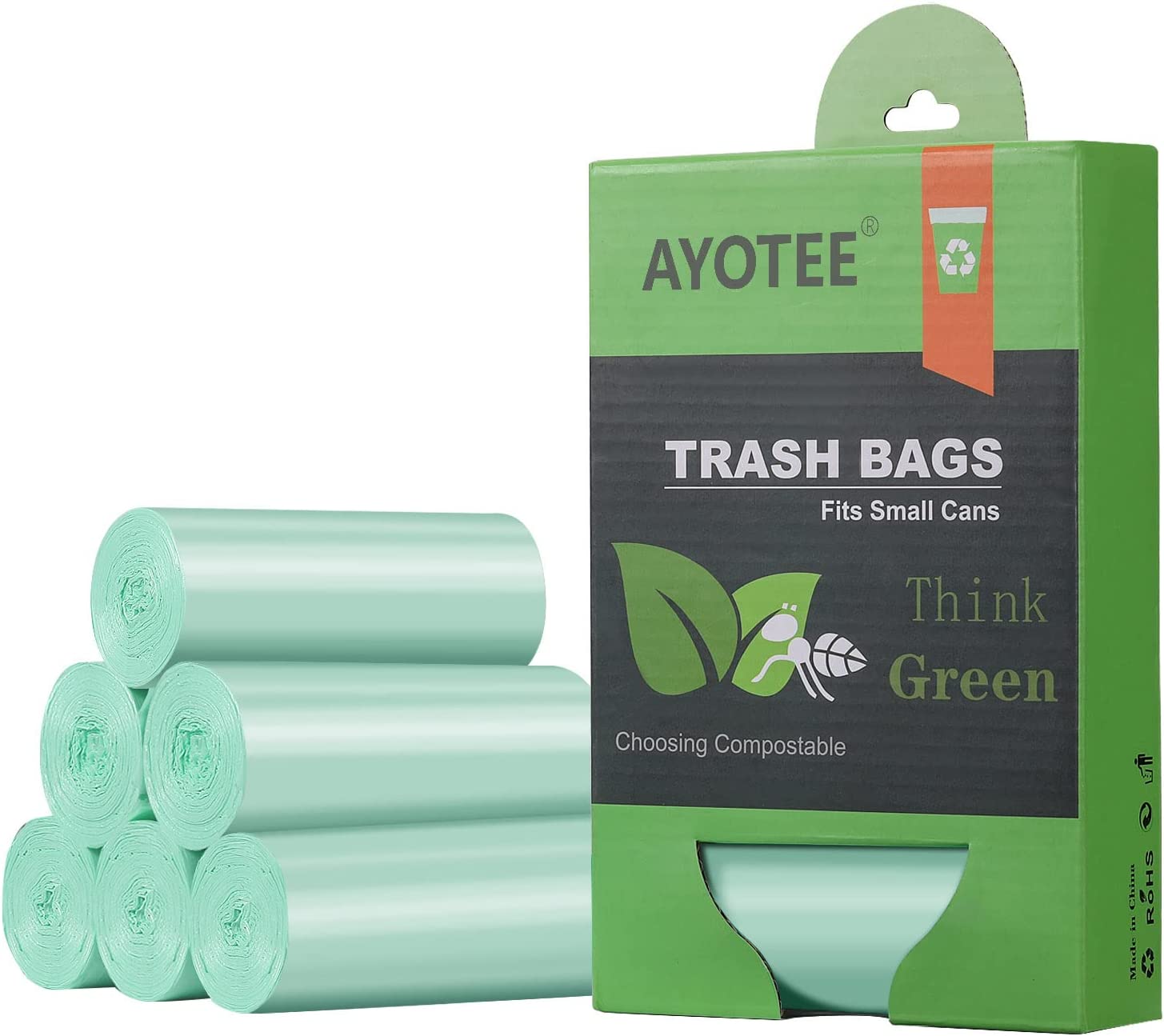
Plant-Based Is Just Not Good Enough
Many brands tout the label "plant based" when only a percentage of their product is actually composed from plants And the rest is some form of plastic.
What's really difficult to find are super large, like 100 gallon, no plastic trash bags, at least for now, but we're getting close. Perhaps our only solution to that, for now, is to opt for a recycled plastic version, load it up with any plastic waste we come across, and take this altogether to a certified plastic recycling facility.
Yes, these facilities can sometimes be hard to find. But the more consumers create an increasing demand for recycled content and hard plastic products, the more we'll see these centers pop up.
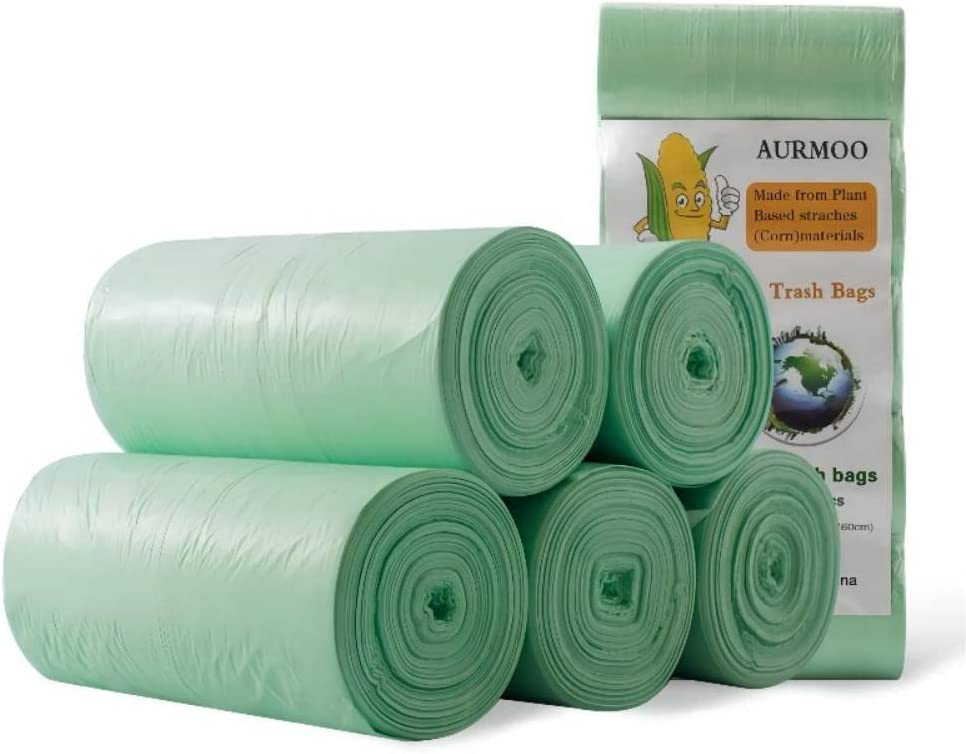
Go PBAT Free
BioBag: These bags are made from plant starches and are certified compostable and biodegradable. They are available in different sizes and strengths to suit different needs. It is argued that PBAT so-called biodegradable products are stronger, more durable, when this is simply NOT the case. There is no evidence to support this.
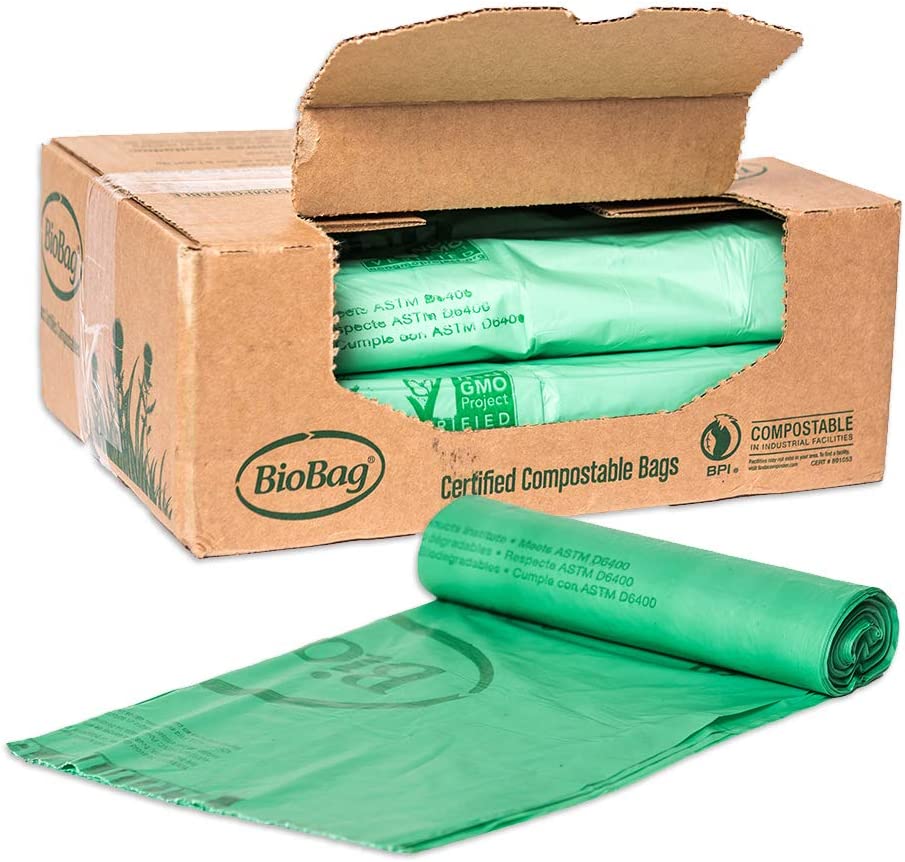
Not Just Green In Color
Unni: compostable garbage bags are made from 100% compostable plant material and can break down within 180 days. They are also leak-proof and durable.
Among the inaccurate claims from proponents of PBAT products is that abundant microorganisms in the environment will easily break down all the plastic remains.
A claim which in theory would be nice, but in reality is unfortunately false. Yes, these microorganisms exist, but they are highly specific and certainly not abundant everywhere.
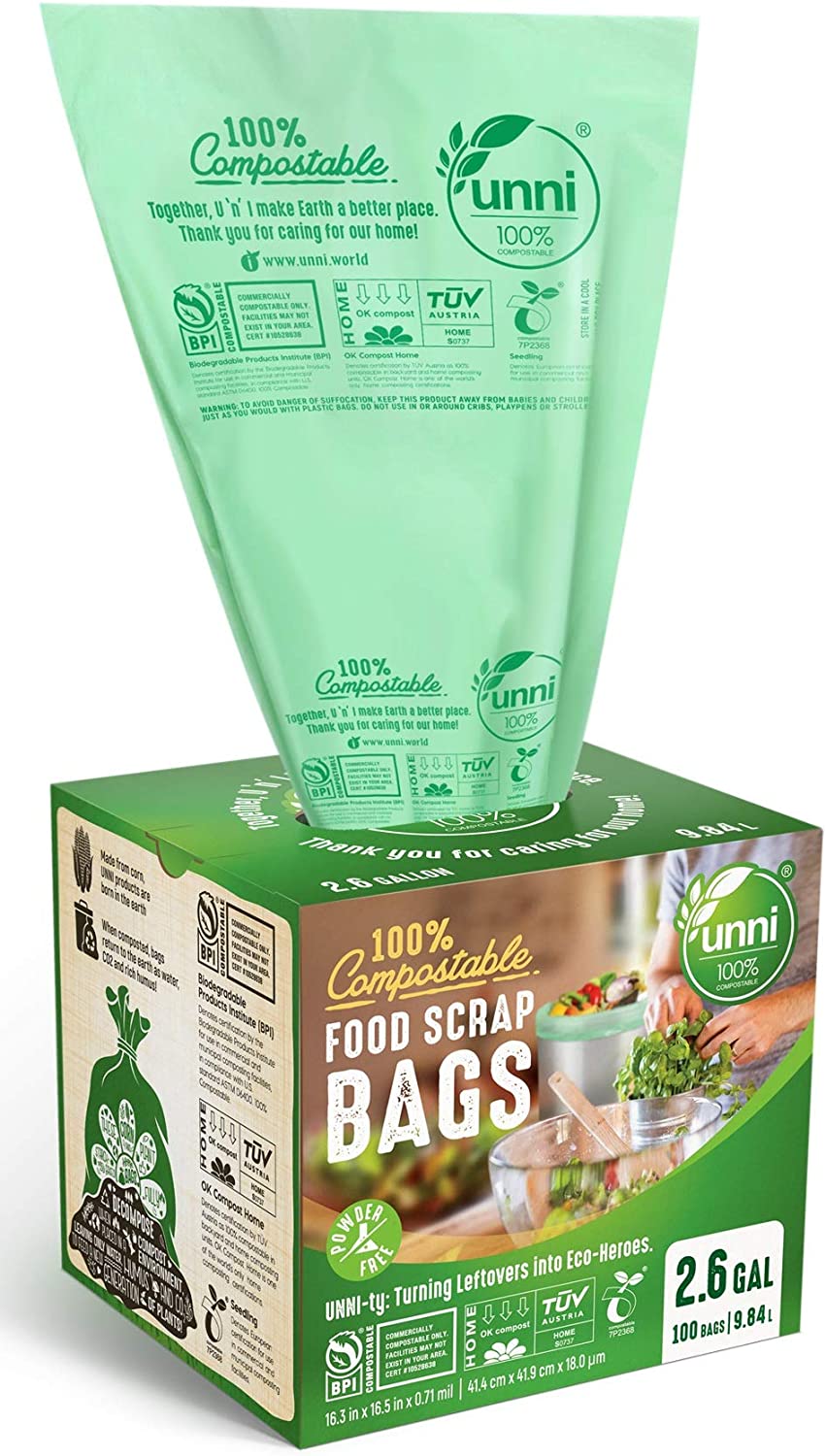
Unni Compare to Keweilian and OrangeBio
Leave No Microplastic Behind
Holy Crap: These bags are made from vegetable oil resins and are fully compostable within 3-6 months. They are also strong and can handle heavy loads.
Natural occurring plant resins are often used in the making of a biodegradable trash bags, easily converted to real eco-polymers. Resins can add strength, and durability while also functioning as natural antiseptic.
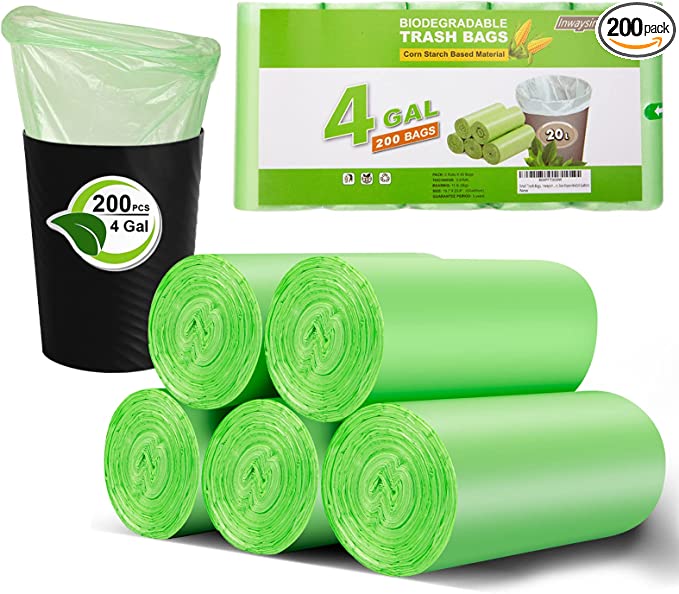
Don't Be Fooled
Other brands would have you think they can offer equally earth-friendly choices. Even using trendy eco-sounding names like Grefusion or Greener Walker (Really?) Don't fall for it, friends and neighbors, these bags contain PBATs, and in substantial quantity.
PBATs are the enemy, to be avoided at all cost. So now you know what to watch out for when switching to a biodegradable trash bag. An easy and effective way to reduce our plastic and micro-plastic waste footprint and protect the environment.
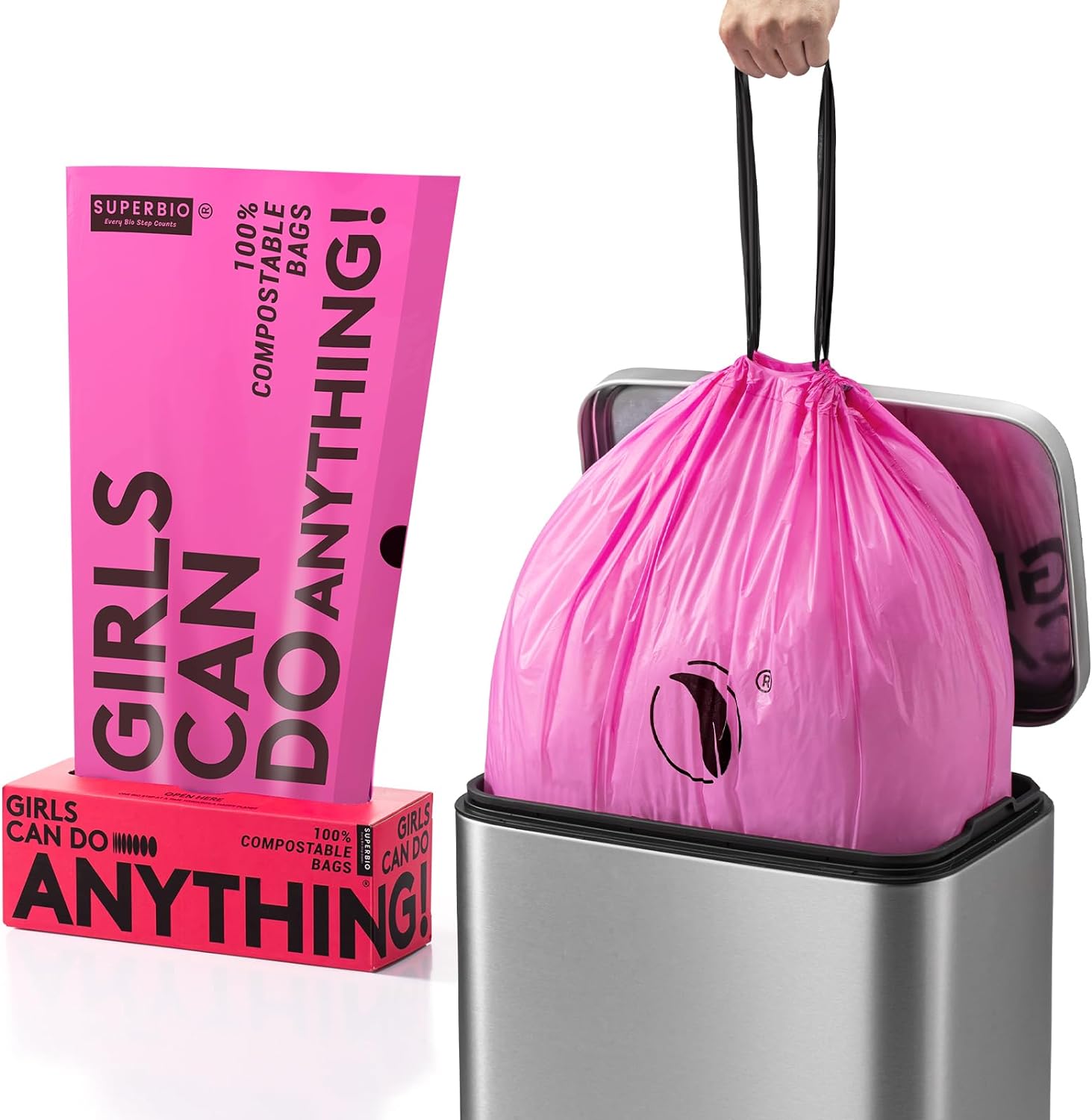
When PBAT degrades in the environment, it breaks down into tiny microplastics that are just as harmful as their non-biodegradable counterparts. That's right, folks. Even our well-intentioned efforts to use eco-friendly materials can come with unintended consequences. But don't throw in the towel just yet – by being mindful of our plastic usage and properly disposing of PBAT products, we can help mitigate the impact of microplastic pollution.
Shop With Care
Say goodbye to the conventional plastic bag and hello to a brighter, greener future. It's time to make a real difference, one compostable bag at a time. Who knew saving the planet could be so easy? Just stop buying plastic, along with products pretending not to be plastic.
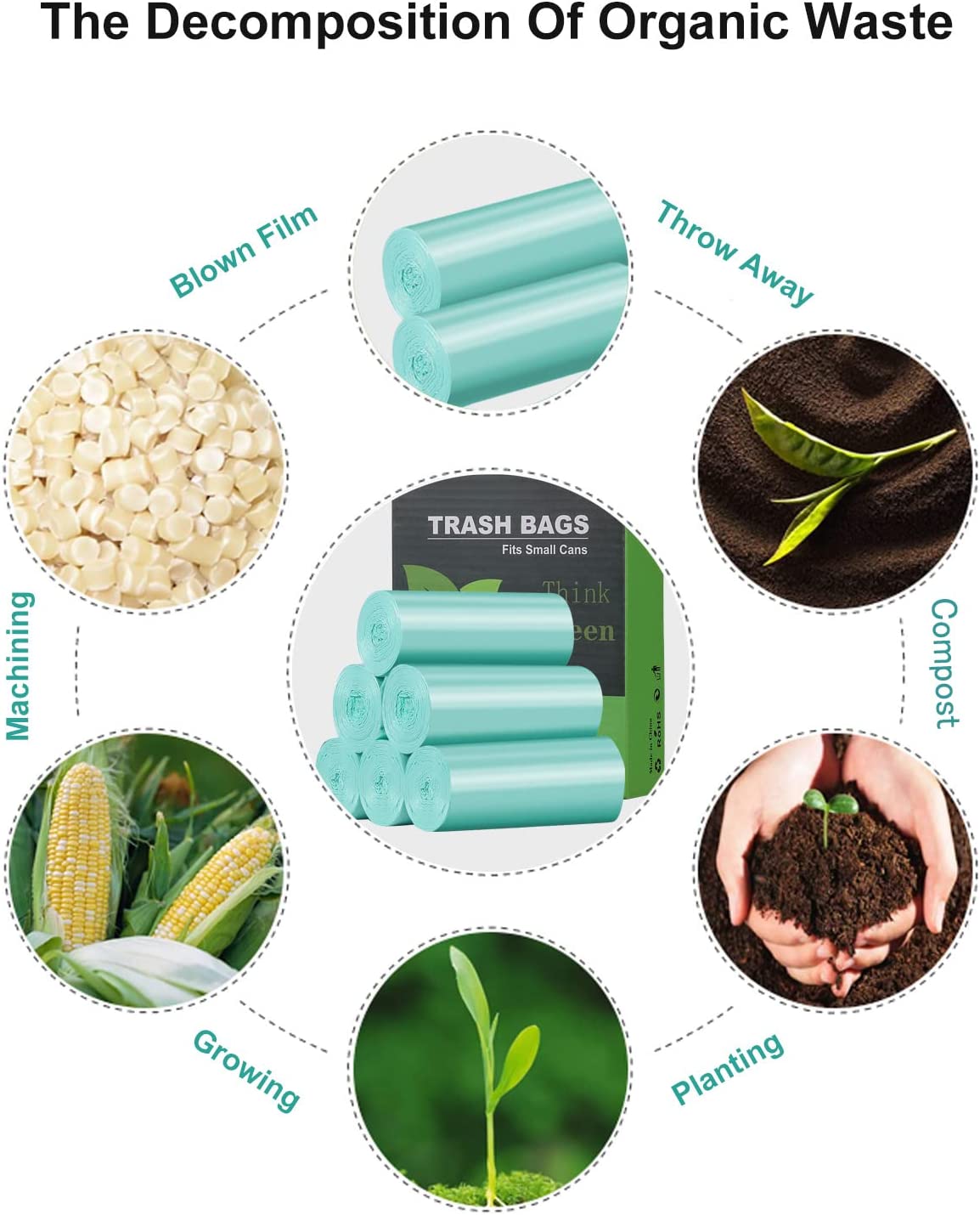
By choosing brands like BioBag, Unni, Holy Crap and others on the No Plastics list, we can ensure that we are using reusable bags made entirely from renewable resources that can decompose naturally. Remember, every small step counts, and by making conscious choices in our daily lives, we can make a big difference in the world. So, let's pledge to go plastic-free when choosing biodegradable trash bags!
The next time you reach for a box of plastic trash bags, think about the impact it has on our planet. Let's opt for compostable alternatives and leave behind a better world for future generations. Don't be trashy, folks.
FAQs
What about recycled plastic trash bags, aren't these just as eco-conscious?
Not really, and only as a last resort. Often these recycled plastic products are not 100% but frequently combined with other materials, PBAT polyester and polyethylene, is common in trash bag composition. The best use for recycled plastic is to turn it into new hard plastic. Any single use disposable plastic item eventually contributes to the microplastic pollution problem.
How are biodegradable trash bags made?
For truly biodegradable bags you start with some very basic ingredients: some kind of plant starch, water, vinegar, glycerin, then apply heat. In a factory setting the resulting material is stretched and flattened and then air is introduced to create a bubble. The thinning film of the material which forms around this bubble is the resulting bag. No plastics needed. Natural resins are often added for extra strength and durability as well as antiseptic qualities inherent in most plant resins.
What are PSMs, PLAs, and PHAs?
PSM (Plastarch Material) is a thermoplastic resin composed of starch combined with several other biodegradable materials, modified in order to obtain heat-resistant properties, Considered the best in terms of being capable of withstanding high temperatures. PLA (polylactic acid) is a made from plant starch. Too fragile on its own PLAs are often strengthened with other compounds like like resins. Used in the food industry to package sensitive food products. PHA (polyhydroxyalkaoate) are linear polymers produced in by bacterial fermentation of sugar or lipids. Biosynthesized rather than produced, a culture of a micro-organisms are fed with bio-nutrients so to multiply rapidly, then starved to force the micro-organisms to synthesize PHA.
Why do some brands insist their PBAT products are earth-friendly?
Because these PBATs (polybutylene adipate terephthalate) mostly do readily break down into smaller particles, and sometimes even faster, however what they are not telling you is that they break down into microplastic particles with the associated toxins of any fossil fuel derived product. In addition it is argued that bacterial organisms further break down what remains. Essentially to be digested and become vertually unrecognizable in the biomas. While it's true such bacteria exist, they are very specific microorganisms. One day we may propagate enough of these microbes to put a dent in our plastic problem, but we're not there yet. Studies have given us no evidence that they exist anywhere in enough quantity in the environment to function as suggested.
For more information:
